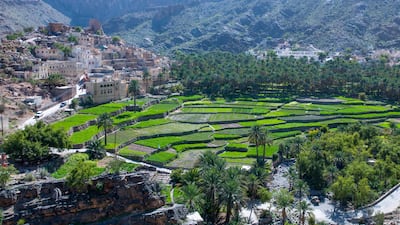A crucial aspect of planning for the future is re-examining food security in the context of climate change. The onus is on every nation to aim for every citizen to have access to safe and nutritious food considering four dimensions as outlined by the World Bank.
These include physical availability, economic access, use and stability over time. Food security relates to a number of the UN Sustainable Development Goals. Some of these goals are: ending world hunger and malnutrition, health and well-being for all ages, access to affordable and clean energy, promoting employment and economic growth, building resilient infrastructure, promoting inclusive and sustainable industries, making sustainable cities and communities, ensuring responsible consumption and production, and taking action to tackle climate change.
It is imperative for any nation attempting to achieve food security to strategically develop local farming systems that are sustainable and built to produce enough to meet local and national demand, as well as for export. Oman has been proactive in expanding its agriculture sector, optimising use of national resources and employing cutting-edge technology to expand output. Last year, the sultanate invested about $890 million, part of the government's strategy to increase food security and diversify economic interests according to Vision 2040.
Further, Oman's agriculture and fisheries sectors witnessed an increase in gross domestic product from $1.09 billion in the first half of 2023 to $116 billion during the same period this year.
There are also 137 food projects under way, the most notable being the Saham Agricultural City, a hub that is set to employ advanced technologies including hydroponics, aeroponics and fish farming in order to provide food to 25,000 people a year. This will create more jobs and allow farmers to maximise output, reducing the sultanate's reliance on food exports.
To offset the effect of climate change, a radical transformation led by strategic government planning – like it has been in Oman – is crucial, since there are looming threats that could limit both physical and economic access to food in many countries. The sultanate's efforts can offer a case study for nations that have not prioritised agribusiness so far. It is not too late to invest in this sector and waiting longer could lead to serious crises for their citizens in coming years.
Climate change can have detrimental effects on agriculture, from loss of natural resources, excessive precipitation, excessive heat, drought, new pests and diseases to name a few. In order to mitigate such changes and have action plans for damage reduction and control, nations must be proactive and armed with the tools they may need beforehand.
The reduced growth of major crops will lead to a drastic drop in supply, driving up prices. Before facing such a predicament, countries can look into alternatives and diversify production while encouraging food consumption patterns that honour seasons, along with livestock and crops that are abundant.
Aside from investing in existing agricultural frameworks, nations can adopt best practices and technologies from leaders in production of specific livestock and crops that are most likely to withstand changes in their climate. Other initiatives towards net zero emissions will also contribute to sustainable agriculture initiatives and subsequently food security.
These could include: creation of sustainable, natural ecosystems and increasing the use of zero-and low-emission vehicles, increasing solar and wind capacity, creating new buildings and machinery that meet strict energy efficiency standards, increasing public transport, decarbonising industries such as aviation, cement and steel, and reducing food loss and waste.
Humanity is at a critical juncture. We are aware of the risks associated with mass production models that have taken over the mainstream over the past few decades. There is no better time than now to piece together the acumen and technology we have acquired with the sustainable, community-centric practices of our forefathers. These are a hallmark of the Omani tradition, and they use the best of our past and present to pave the way for a secure and prosperous future.
Oman has come a long way in just a few decades, developing at a rapid but consistent pace and evolving with the times to protect its future. It goes to show the power of communal mindsets and collective commitment towards moving forward while also honouring the past. This serves as an important lesson for other nations that could achieve similar success through strategic leadership and a push for community engagement.
While climate change poses a series of risks to food security and overall human well-being, planning and investments can help to mitigate those risks and protect the future.


